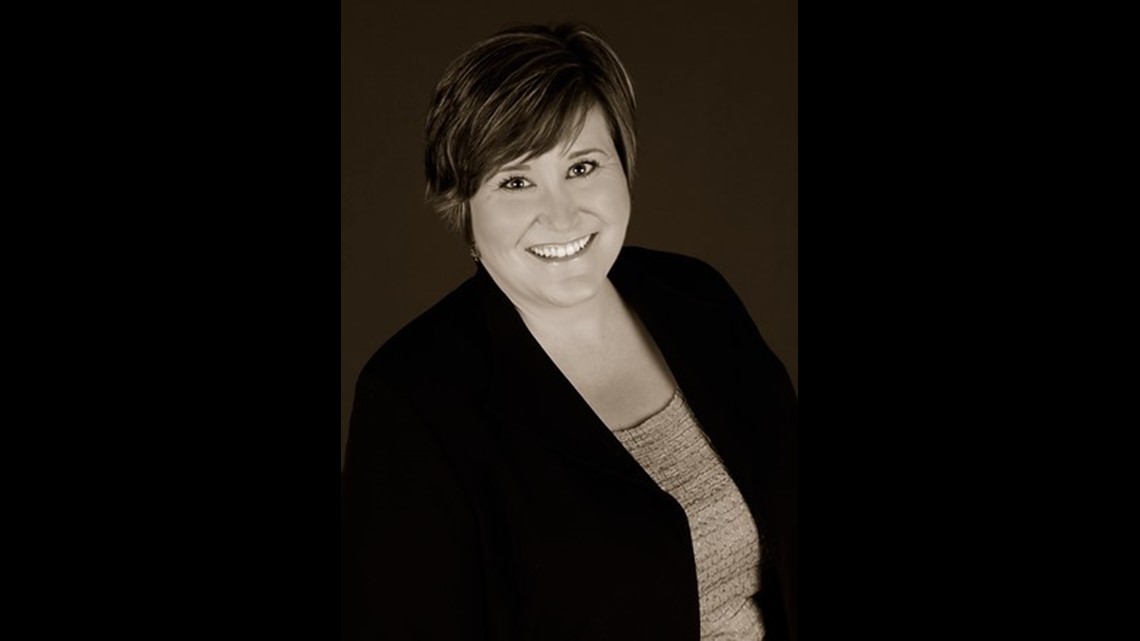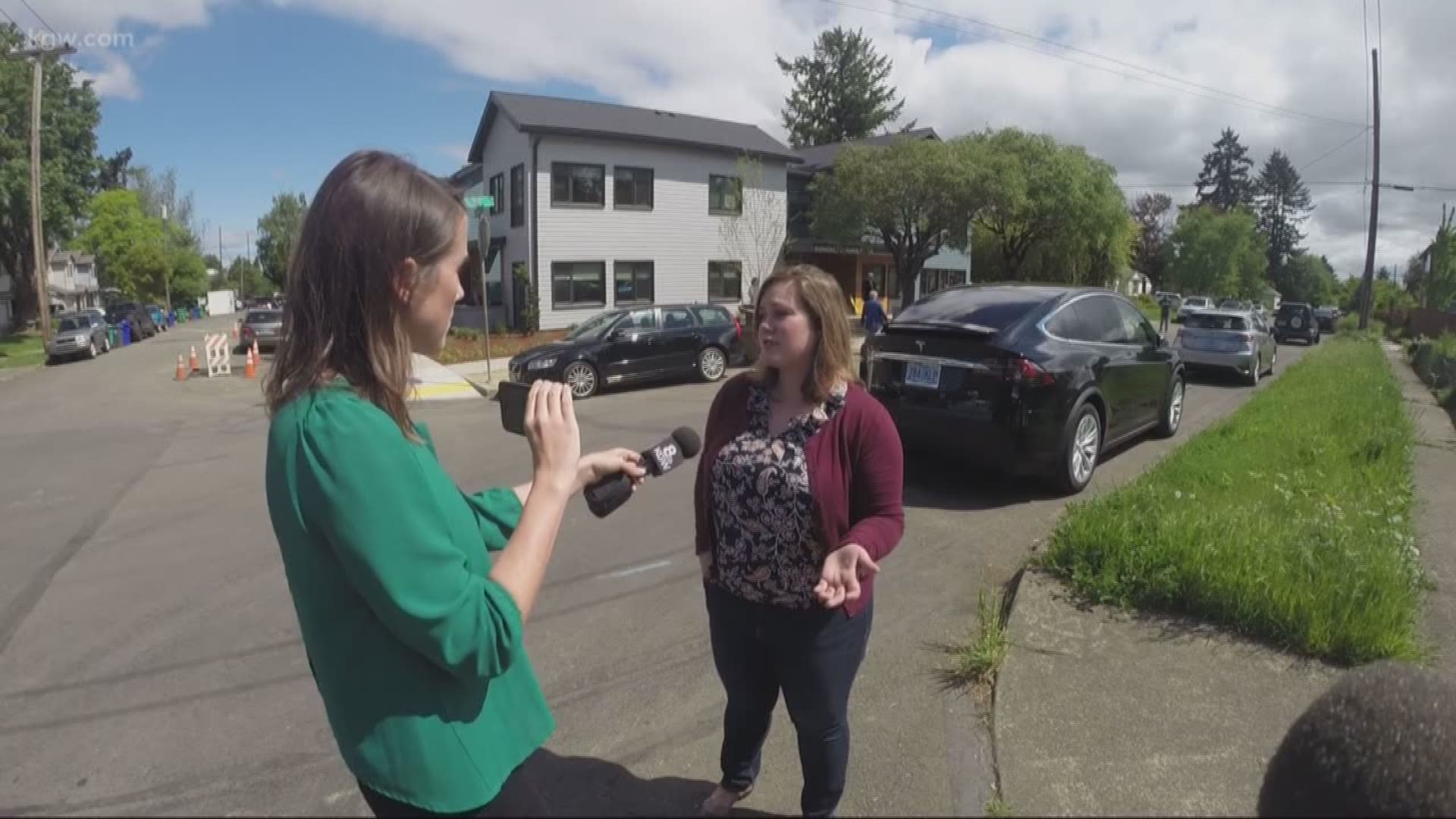PORTLAND, Ore. – Every month, Jamie Gerlitz works overtime and barely breaks even. She’s not a minimum wage worker, though. She’s a lawyer for kids and parents in Oregon’s foster care system.
Gerlitz is a dependency attorney, which means she argues on behalf of children who are removed from their homes, as well as the biological parents or family members who want to regain custody of their kids. She runs a busy solo practice from an office in Bend, taking on between 80 and 90 court-appointed cases at a time.
Her workload is on the low end for lawyers like her. A 2014 state report found lawyers in some Oregon counties averaged more than 100 cases at a time, and each case can involve multiple children with different needs.
The reason they take on so many cases is the state of Oregon pays dependency lawyers like Gerlitz around $800 per case in “up-front money,” no matter the outcome of the case. They can make a few hundred dollars more for each court hearing, but those usually happen only once every three to six months.


Lawyers who argue for the state’s foster care system, meanwhile, often make six-figure salaries.
In order for dependency lawyers to make the meager payments add up to a decent salary, they have to take on huge caseloads and try to close each case quickly, so they can move onto the next one. That means, in order to eke out a living, many lawyers don’t do their clients justice.
“It’s not a great model. It promotes bad conduct,” said Lane Borg, the executive director of the state’s Office of Public Defense Services, which pays court-appointed dependency lawyers.
Dependency lawyers are assigned cases after Department of Human Services takes children from their homes. They typically learn of the case a few hours before the first court appearances. The lawyers then have to scramble to get to court, attempt to meet with the children or parents, and argue on behalf of their clients. After that, lawyers do research, have client meetings and sometimes hearings or a trial until the court decides whether a child will reunite with their parent, live with another relative or stay in foster care.
Some cases don’t need much management, which is why lawyers can handle dozens at a time. But promoting volume doesn’t incentivize lawyers to spend extra time on complicated cases, take them to trial or even regularly meet with the kids and parents they represent.
Gerlitz knows this firsthand. She represented a Central Oregon couple whose children were taken away because the state said they were not intelligent enough to care for them. She argued on the couple’s behalf and their two boys were returned home, four years after their older son was first taken away.
Gerlitz dove into that case, working with the parents to prove they were able to care for their kids. But she says it would have been a much better financial decision to quickly close.
“When attorneys get to keep the up-front money as soon as the case closes, then it’s a lot more enticing to say, ‘Hey, you might have a substance abuse problem, and I think that although we could go to trial, it might be better to admit you have a substance abuse problem than go through the hoops,’” she said.
It’s a tough balancing act for Gerlitz, who is legally required to have an office, support staff and malpractice insurance. Her overhead runs her about $6,500 a month. She makes around $10,500 each month, and that leaves her about $4,000 to pay her taxes, student loans and personal expenses. She said if her husband didn’t have a good salary and health insurance, she wouldn’t be able to continue the work.
The larger problem, Gerlitz says, is that biological kids and their parents are not reunited expeditiously, because dependency lawyers are incentivized to close cases, instead of going to trial and helping parents make court-ordered changes.
“The kids are kept away from parents longer than they otherwise could be, either if the parents had extra support to make sure they were following up on all the various things that were asked of them, or if attorneys were filing motions as soon as the kids are able to get back in court and go to trial on the issues that should go to trial,” she explained.
Changing the funding model for dependency lawyers could make a huge difference for the 8,000 kids who are currently in Oregon’s foster care system. In Washington state, where dependency attorneys make a salary, children who are reunified with their parents return home one month faster than in Oregon.
The Oregon model could change soon. Some counties are already testing out a salary model based on Washington state’s program. It’s called the Parent Child Representation Program, and gives dependency lawyers a set salary for the year. They can’t take on more than 80 cases at a time. There is no bonus for taking extra cases.
Columbia, Linn and Yamhill counties are currently testing the salary model and the Oregon Legislature approved funding for Lincoln and Coos counties to test it out next.
Borg says the Office of Public Defense Services is asking lawmakers to expand the program even further in December.
For Gerlitz, that change can’t come soon enough. Although she loves her job, she’s reaching a breaking point.
“The population, particularly the kids – they need somebody that’s going to be able to stand up for them and say, ‘Hey, that’s not right. That’s not the way the law is supposed to work,” she said. “But I honestly am at kind of that point that I’m asking myself, ‘Why? Why am I doing this?’”
Borg knows many Oregon dependency lawyers are in the same boat as Gerlitz.
“The people that stay, it’s because they become committed to the mission,” Borg said. “It’s a struggle to make it sustainable economically.”





